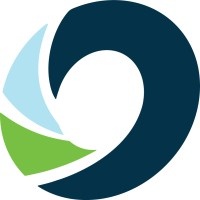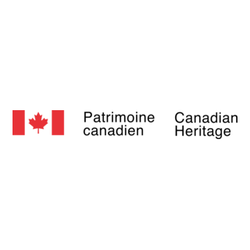
Opening Soon
Flood Resilience and Adaptation Program - Community Resilience and Relocation Component
Last Update: October 27, 2025
QC, Canada
Supports municipal relocation and resilience projects in flood-risk areas
Grant and Funding
At a glance
Funding available
Financing goals
Increasing community impact
Reduce the ecological footprint
Raise awareness and mobilize the public
Eligible Funding
- No Condition
Timeline
- Unspecified
Eligible candidates
Eligible Industries
- Public administration
Location
- Quebec
Legal structures
- All legal structures
Annual revenue
- All revenue ranges
Organisation size
- All organization sizes
Audience
- Indigenous Peoples
- Rural or Northern Residents
Overview
The Flood Resilience and Adaptation Program – Community Resilience and Relocation Component offers up to $75 million to support municipal projects aimed at relocating or enhancing the resilience of public and heritage buildings in high-risk flood zones. Eligible activities include community resilience planning, building relocation or reconstruction, and public awareness initiatives regarding flood risk and adaptation.
Activities funded
- Preparation of community resilience plans for flood-prone areas.
- Implementation of relocation measures for eligible heritage or municipal/community buildings located in high flood risk zones.
- Immunization (flood-proofing) of certain categories of buildings exposed to flood risks.
- Information and public awareness activities regarding flood issues or the context of relocation.
- Restoration of sites left vacant after the relocation or demolition of eligible buildings, returning them to a safe and natural state.
Examples of admissible projects:
$ 98,000
Relocation of historic community centre from high-risk flood zone
$ 61,000
Restoration of riverbank sites vacated post-building relocation
$ 69,000
Flood-proofing retrofit of a municipal public library building
$ 90,000
Development of a comprehensive flood resilience plan for downtown
$ 58,000
Comprehensive site and impact studies for future flood relocation
$ 47,000
Design and communication campaign on flood risk and awareness
Eligibility
- The applicant must be a municipality, regional county municipality (MRC), intermunicipal board, or a grouping of such organizations.
- The proposed project must aim to protect people and property from flood risk and align with the program's specific objectives.
- The project must address buildings located in high flood risk zones as defined by official Quebec government mapping or regulations.
- The application must contain all required information and supporting documents as outlined by the program guidelines.
- The applicant must obtain formal approval for the project from the council or governing body, when applicable, through a resolution.
Who is eligible?
- Municipalities
- Regional county municipalities (MRC)
- Intermunicipal boards
- Groupings of the above municipal organizations
Who is not eligible
- Private companies, except for those owning eligible heritage buildings.
- Municipal buildings with sports, recreational, or cultural purposes (e.g., arenas, libraries), unless they are classified as heritage buildings.
- Public, parapublic, and government organizations.
- Non-profit organizations engaged exclusively in recreational activities or whose premises are not freely accessible to the public.
- Agricultural businesses, banks, and authorized deposit institutions.
Eligible expenses
- Contracts and professional fees for project planning, implementation, and monitoring (including studies, technical reports, professional services such as engineering, architecture, archeology, urban planning, and project management)
- Purchase of materials and supplies required for eligible works
- Laboratory and site surveying costs
- Quality control costs for construction materials
- Rental of tools, equipment, and machinery directly used for eligible activities
- Salaries for municipal employees assigned directly to eligible tasks (based on regular hourly rates)
- Public communication and information costs required by the government (including installation of project signage)
- Costs related to obtaining municipal permits and governmental authorizations
- Impact study costs
- Costs of integrating permanent art in compliance with relevant government policies
- Costs related to archaeological potential studies or excavations if required
- Verified acquisition costs of buildings for requalification, as evaluated by the ministry
- Costs associated with external independent auditing when required by the Ministry
- Directly applicable net taxes on eligible costs
Eligible geographic areas
- Municipalities, regional county municipalities (MRCs), intermunicipal boards, and their groupings located within the province of Quebec.
Selection criteria
- Implementation of the project from a comprehensive and sustainable perspective, targeting priority sectors.
- Significance of the flooding issue in the targeted sector (history, recurrence, risks and impacts, number of people and buildings at risk).
- Demonstration of the relevance of the proposed solution.
- Quality of planning and capacity of the municipal organization and partners to carry out the project.
- Consultation process with affected citizens and level of social acceptability of the project.
How to apply
1
Check eligibility and program criteria
- Identify your eligibility based on the program's criteria
- Confirm that your organization and project type meet the requirements
- Review categories of eligible buildings and activities
2
Prepare documentation and information
- Download and consult the program guide, applicant guide, and relevant documentation
- Gather detailed information about your project and required documents
- Coordinate with a project office if available in your territory
3
Complete forms and gather supporting documents
- Fill out the PRAFI information form and gather all required supporting documents
- Ensure all information is complete and accurate
- Obtain a municipal council resolution if necessary
4
Submit application through PGAMR portal
- Submit your completed application and supporting documents via the PGAMR online portal
- Ensure all parties with access permissions are properly registered and mandated
5
Await evaluation and selection results
- Wait for the Ministry to process and review your application
- Respond to any requests for additional information if contacted
Additional information
- Beneficiaries must maintain and keep accessible all supporting documents and financial records for a minimum of three years following the final expense claim submission.
- A verification process may be applied before the final payment is approved, based on random sampling and risk analysis.
- The grant encourages, but does not require, the use of sustainable building practices and materials, such as wood structures.
- Financial support is conditional on the availability of allocated funds and respect for all applicable laws and regulations.
Contacts
changements.climatiques@mamh.gouv.qc.ca
4186912010
QC, Canada
Apply to this program
Frequently Asked Questions about the Flood Resilience and Adaptation Program - Community Resilience and Relocation Component Program
Here are answers to the most common questions about the Flood Resilience and Adaptation Program - Community Resilience and Relocation Component. This section explains what the program is, how much funding is available, eligibility requirements, application deadlines, and other important details to help you determine if this grant is right for your business.
What is the Flood Resilience and Adaptation Program - Community Resilience and Relocation Component?
How much funding can be received?
What expenses are eligible under Flood Resilience and Adaptation Program - Community Resilience and Relocation Component?
What is the deadline to apply?
Is the Flood Resilience and Adaptation Program - Community Resilience and Relocation Component a grant, loan, or tax credit?
Who are the financial supporters of the Flood Resilience and Adaptation Program - Community Resilience and Relocation Component?
Who is eligible for the Flood Resilience and Adaptation Program - Community Resilience and Relocation Component program?
Who can I contact for more information about the Flood Resilience and Adaptation Program - Community Resilience and Relocation Component?
Where is the Flood Resilience and Adaptation Program - Community Resilience and Relocation Component available?
Are Indigenous Peoples eligible for the Flood Resilience and Adaptation Program - Community Resilience and Relocation Component program?
Apply to this program
More programs like this

Grant and FundingOpen
ÉcoPerformance — Recommissioning of building mechanical systems
Gouvernement du QuébecFunding to optimize the operation of building mechanical systems

Grant and FundingOpening Soon
Flood Resilience and Adaptation Program (PRAFI) - Resilient Development Component
Ministry of Municipal Affairs and HousingSupports municipal flood resilience and adaptation infrastructure projects

Grant and FundingClosed
Accelerating the local climate transition - Component 1
Environnement Québec (MELCC)Supports municipal climate action planning and implementation in Quebec

Tax CreditsWage Subsidies And InternsOpen
Financial assistance for the hiring of a person to integrate a job on a long-term basis
Gouvernement du QuébecSupports employers hiring candidates facing employment barriers

Grant and FundingOpen
Charge+
Propulsion QuebecSupports installation of electric vehicle charging infrastructure in Quebec

Partnering and CollaborationGrant and FundingExpert AdviceSuspended
Financial support to assess your energy use Hydro Quebec
Hydro-QuébecUp to $50,000 for energy performance analysis and optimization

Grant and FundingClosed
Greater Montreal Climate Fund — 2025-2026 Call for projects
Greater Montreal Climate FundSupports innovative projects reducing greenhouse gas emissions in Montreal

Grant and FundingOpen
Support program for economic development projects (PAPDE) — Component 2 : Support for the development of strategic sectors and regions
Gouvernement du QuébecSupport the economic development of strategic sectors and regions

Grant and FundingClosed
Anti-Racism Action Program
Canadian HeritageSupports initiatives addressing racism, discrimination, and social barriers

Grant and FundingOpen
Roulez Vert — Rebate for charging station at work
Gouvernement du QuébecGet financial aid to install electric charging stations at your Quebec business
Sign up to our platform to access the Flood Resilience and Adaptation Program - Community Resilience and Relocation Component information sheet for free
Get access to 4,000+ programs, practical guides, personalized alerts, and an AI assistant to support your grant applications.